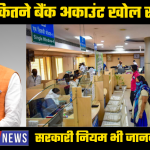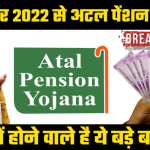The Union Public Service Commission conducts the Civil Services Examination (CSE) to select candidates for India’s prestigious civil services, such as the Indian Administrative Service (IAS), Indian Police Service (IPS), Indian Foreign Service (IFS), and other allied services. The exam is held in three stages i.e., UPSC Prelims, UPSC Mains, and the Personality Test/ Interview Round.
Every year, the subject of Indian politics and constitution has dominated the preliminary, mains, and interview rounds of the civil services exam. Aside from understanding the Indian Constitution, individuals aspiring to appear in the civil services exam must be well-versed in the fundamentals of our political system, which will also benefit them after joining the services.
On that note, let’s discuss a few simple yet effective tips that will significantly ease your Indian Polity preparation for the upcoming civil services exam.
Start With Basics
To begin, you should refer to NCERT textbooks of Class IX, X, and XI to develop a strong understanding of fundamental concepts in Indian Polity. NCERT textbooks are easy to grasp because of their clarity and simplicity, and are perfect for beginners.
Start with the NCERT of class IX, Democratic Politics-I, and work your way up to the NCERT of class X, Democratic Politics-II, where you can get conceptual clarity regarding politics and some concepts that are crucial to interpreting the constitution.
Finally, advance to Class XI NCERT textbook, Indian Constitution at Work, which may be a must-read and act as a foundation for reading other standard Indian Polity books. It is recommended that you study the NCERT books properly and make a habit of underlining important points as you read them for revision.
To enhance your knowledge, you can also refer to M. Laxmikanth’s Indian Polity. The book is widely regarded as the bible of Indian politics.
Read Newspapers
Reading good English newspapers like “The Hindu”, “The Indian Express” and “ HINDUSTAN TIMES” every day is a wise idea because many questions are asked from current affairs. Keep an eye out for stories and editorials on the Indian constitution, as well as the national and international political systems. Also, make a note of all new bills, policies, acts as well as any related provisions.
Refer & Solve Previous Year Papers
They will familiarise you with the nature and types of questions that have been asked in the recent years. Not only this, but you will also get an idea of the topics frequently asked in the exam which carry higher weightage so that you prepare accordingly.
For instance, MCQs on the points of difference between lawyer and advocate have often been featured in the Polity segment of the previous years civil services exams and therefore must be covered thoroughly by the aspirants.
Solve Mock Tests
If you haven’t attempted a Mock Test, consider your preparation to be incomplete. In order to properly study for and score higher on the Indian Polity exam, schedule at least two mock tests per week in the early stages of preparation, and one mock test per day as the exam approaches.
Furthermore, regular revisions and attempting mock tests and quizzes can help reinforce the concepts and bolster one’s confidence in the subject.
Avoid Memorising all Articles of Indian Constitution
Learning all the Articles of the Indian Constitution would be a daunting task and quite frankly unnecessary. Only a few important articles are necessary. Most relevant articles like office and duties of the attorney general of India in article 76 and 143 respectively would be immediately registered if one is familiar with the fundamentals and has thoroughly revised the subject.





